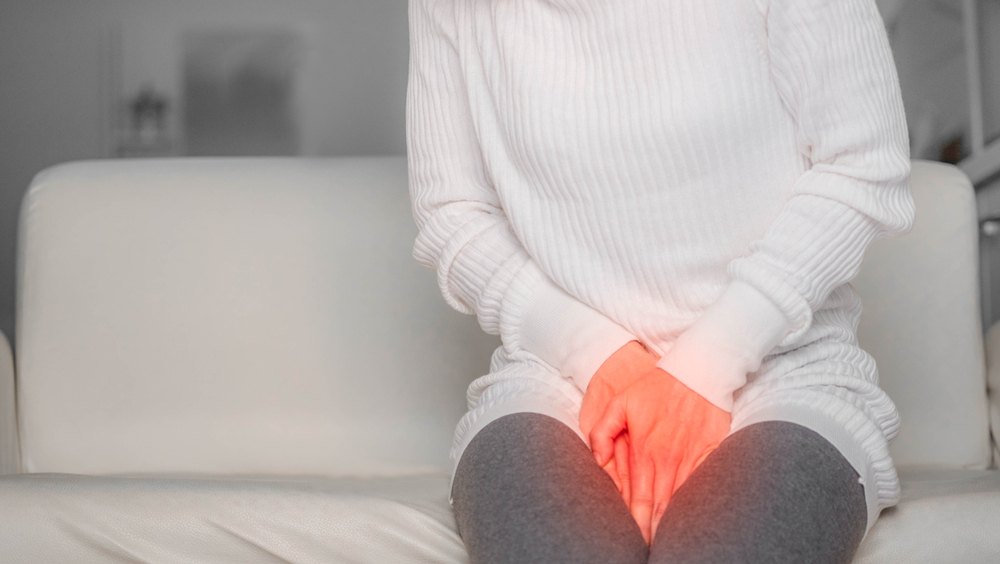Itchy, irritated skin in the vulvar area can be frustrating and uncomfortable. Many people assume it’s a yeast infection or another common issue. However, vulvar eczema is a real condition that can cause persistent discomfort.
Vulvar eczema is a skin condition that leads to dryness, itching, and inflammation in the sensitive skin around the vulva. It is not an infection, but it can mimic other conditions. Many people struggle with it without knowing the cause.
This guide will cover everything you need to know. You will learn about its symptoms, causes, treatments, and when to see a doctor. By the end, you will have a clear understanding of how to manage and prevent flare-ups effectively.
What Is Vulvar Eczema?
Vulvar eczema is a type of dermatitis that affects the vulva. It causes red, itchy, and inflamed skin, often leading to irritation. Many people mistake it for an infection or an allergic reaction. However, it is a chronic skin condition that can flare up due to various triggers.
Unlike infections, vulvar eczema is not caused by bacteria or fungi. Instead, it results from an overactive immune response to irritants or allergens. While it can be uncomfortable, it is not contagious.
Understanding the difference between eczema and other skin conditions is important. For example, vulvar psoriasis also causes irritation but may have scaly patches. Meanwhile, yeast infections often lead to discharge, which eczema does not. Recognizing the symptoms early can help you seek the right treatment.
What Are the Symptoms of Vulvar Eczema?
Vulvar eczema can present in different ways. Some people experience mild discomfort, while others have severe irritation. Here are some common symptoms:
- Itching that worsens at night or after sweating.
- Dry, flaky, or scaly skin in the vulvar area.
- Redness or inflammation that comes and goes.
- Burning or stinging sensations, especially after urination.
- Thickened skin from repeated scratching.
- Cracks or small sores in severe cases.
Moreover, symptoms may not always be constant. Some people experience flare-ups triggered by specific factors like stress, new skincare products, or weather changes. If symptoms persist or worsen, it is best to consult a doctor for proper diagnosis and treatment.
What Causes Vulvar Eczema?
Vulvar eczema has many possible causes. Some triggers are environmental, while others are related to the body’s immune response. Here are some common causes:
- Irritants: Soaps, detergents, scented wipes, and personal care products can cause irritation. Even some types of toilet paper can be harsh on sensitive skin.
- Allergies: Some people develop eczema after exposure to allergens like latex, fragrances, or fabric dyes.
- Climate: Extreme weather, such as dry winters or humid summers, can trigger flare-ups.
- Underlying Skin Conditions: People with atopic dermatitis or contact dermatitis may be more prone to vulvar eczema.
- Hormonal Changes: Fluctuations in hormones, such as during menstruation or pregnancy, can make symptoms worse.
Therefore, identifying and avoiding personal triggers can help prevent future flare-ups. Keeping a symptom journal may help you find patterns in what worsens your condition.
How Is Vulvar Eczema Diagnosed?
Diagnosing vulvar eczema requires a medical evaluation. Doctors typically ask about symptoms, triggers, and medical history. They may also perform a physical exam to check for signs of irritation.
Additionally, some doctors may conduct a patch test to identify allergic reactions. This helps determine if an irritant is causing the symptoms. In some cases, a biopsy may be done to rule out other skin conditions.
Importantly, proper diagnosis ensures the right treatment. Misdiagnosing eczema as an infection may lead to unnecessary treatments that do not work. If symptoms persist despite treatment, consider seeking a second opinion.
Treatment Options: What Works?
Managing vulvar eczema involves a combination of medical treatments and lifestyle changes. Here are some effective options:
1. Over-the-Counter Treatments
- Hydrocortisone creams can reduce itching and redness.
- Moisturizers help repair the skin barrier and prevent dryness.
- Antihistamines may relieve itching, especially at night.
2. Prescription Medications
- Doctors may prescribe stronger topical steroids for severe cases.
- Immunomodulators can help control inflammation without the side effects of steroids.
- Antibiotics may be necessary if scratching leads to an infection.
3. Home Remedies and Lifestyle Adjustments
- Using fragrance-free soaps and detergents reduces irritation.
- Wearing cotton underwear allows better airflow and prevents moisture buildup.
- Taking oatmeal baths soothes the skin and relieves itching.
Moreover, consistent skincare is key. Even when symptoms improve, continuing a gentle routine can prevent future flare-ups.
Can Lifestyle Changes Help Manage Vulvar Eczema?
Yes! Small adjustments can make a big difference in reducing symptoms. Here are some helpful changes:
- Choose Gentle Skincare: Use unscented, hypoallergenic products to avoid irritation.
- Wear Loose Clothing: Tight underwear or synthetic fabrics can trap moisture and worsen symptoms.
- Stay Hydrated: Drinking water keeps the skin hydrated and prevents dryness.
- Manage Stress: High stress levels can trigger flare-ups. Relaxation techniques like deep breathing may help.
- Be Mindful of Diet: Some people notice that certain foods, such as dairy or gluten, make their eczema worse.
Furthermore, tracking symptoms over time can help identify what works best for your skin. Making these changes part of your routine can lead to long-term relief.
When Should You See a Doctor?
While mild cases may improve with home care, some situations require medical attention. Consider seeing a doctor if:
- Symptoms do not improve with over-the-counter treatments.
- The affected area becomes swollen, cracked, or infected.
- The itching is severe enough to interfere with daily life or sleep.
- You are unsure if the symptoms are due to eczema or another condition.
Therefore, early intervention can prevent complications and help you find relief faster. Seeking professional advice ensures you receive the right diagnosis and treatment.
Conclusion
Vulvar eczema can be frustrating, but it is manageable with the right approach. Understanding its symptoms, causes, and treatments can help you take control of your skin health.
To recap:
- Vulvar eczema causes itching, dryness, and irritation.
- Triggers include irritants, allergies, and climate changes.
- Treatment options range from moisturizers to prescription medications.
- Lifestyle changes, such as wearing breathable fabrics, can reduce flare-ups.
- If symptoms persist, consulting a doctor is the best course of action.
Additionally, new research is constantly emerging. Clinical trials of atopic dermatitis may provide better treatment options in the future. If current treatments do not work, you may consider discussing clinical trials with your doctor.
Ready to take control of your skin health? Start by making small changes today. Your skin will thank you!


